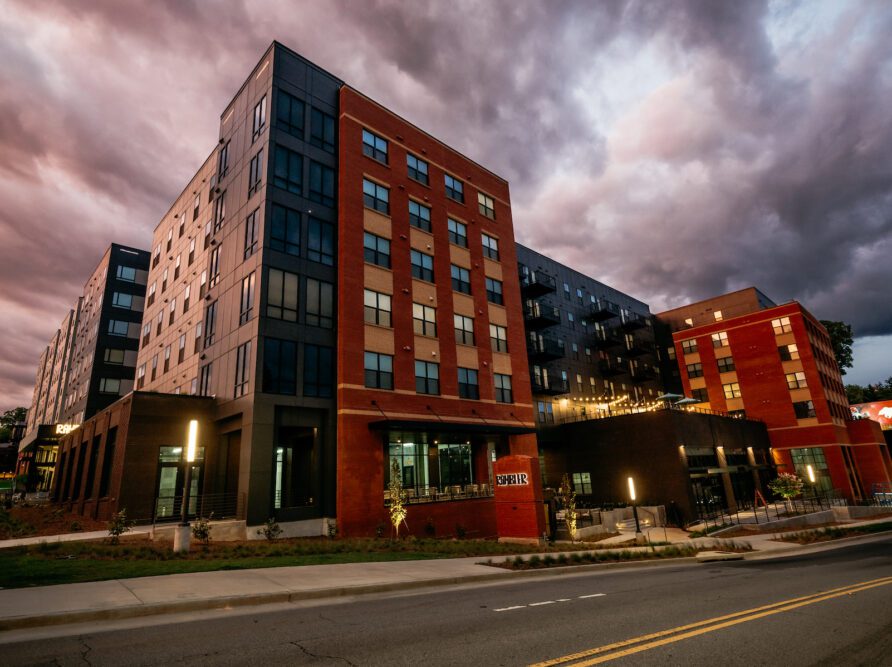There are numerous factors to consider when deciding where to live in Athens at UGA, but the most popular question students ask is in regard to how much their overall cost of living will be. As a UGA student myself, I know that finding an apartment that meets your needs while staying within your budget can be stressful.
@ramblerathens How much does it cost to live near UGA? The answer is it depends! Here are 5 factors that can affect your cost of living. #uga #godawgs #uga25 #uga26 ♬ Feeling Good Vibes – Thays B.M
While it seems like this question should have a concrete answer, the truth is that it varies greatly and changes often when considering all the factors affecting the cost of living.
Near the University of Georgia, rental rates can range from $400 to over $2000 per month, depending on a variety of factors. Location, building age and unit type all play a role in determining your monthly housing rate.
Read Next: Ultimate Guide to Living Off-Campus for UGA Students
At Rambler, while we’re confident that our floor plan offerings can accommodate a wide variety of budgets, we also understand the importance of making an educated housing decision. We have written this article to help explain how rent is calculated in Athens, the types of housing available, and the factors that affect pricing.
To help you better understand the cost of living for students near UGA, we have put together an ultimate guide, including:
- How student housing apartments calculate rental rates
- Which factors affect the price of monthly rental rates
- Other fees to consider on top of monthly rental rate
How Much Does it Cost for UGA Students to Live in Athens?
How Student Housing Apartments Calculate Rental Rate
It’s important to understand how rental rates are calculated. This way, you can best understand what rent typically costs in Athens.
In a house or traditional apartment, you and your roommates are typically required to sign one lease for the entire unit. This means that you’ll pay one lump sum rate each month, and are responsible for dividing the rent expense up amongst yourselves.
As opposed to traditional housing rates, purpose-built student housing is slightly different.
Purpose-built student housing leases are not done by the entire apartment, but rather per bed. Every roommate signs an individual lease for their own room or bed in a room. Just like traditional apartments, each individual lease agreement is divided into 12 equal installments for a year-long lease. You pay installments each month over the course of the lease term. Each roommate is held responsible by the landlord for their portion of the lease. This way, they do not have to worry about whether or not other roommates pay their individual leases.
When looking for student housing, it’s important to understand if the rental rate listed is per-bed or for the entire apartment or house.
It’s also important to know how long of a lease you’re required to sign.
With purpose-built student housing, you will typically sign a 12-month lease. Move-in dates are typically in mid-August, and move-out dates will typically be at the end of July. Sometimes, student housing apartments will have the option for early move-in, usually offered starting in early August.
At most student housing apartment complexes, this is how the process works, however some exceptions exist. There are some apartments that will work with you to sign a six-month lease if you need one. This can be helpful for those who plan to graduate early or study abroad.
Leases for on-campus housing are typically offered as a nine-month contract, based on the Fall and Spring semesters, rather than a full year.
Factors That Affect the Price of Monthly Rental Rates
UGA students have a myriad of options of where to live for the school year. Most students are looking for a place that will allow them to live with their friends and have a short commute to class. For undergraduate students at UGA, the most popular types of housing are:
- Dorms
- Greek (sorority and fraternity) houses
- Student housing apartments
- Traditional apartments
- Traditional houses
Read Next: What Types of Housing Are Available for UGA Students?
1. Housing Type
Residence Halls/Dorms

Building 1516 located in East Campus Village at UGA. Photo courtesy of The University of Georgia.
UGA requires all first-year students to live in the dorms, formally known as residence halls.
Residence halls are convenient for walking to class, making friends, and keeping up-to-date with campus events. UGA has 31 residence halls to choose from with a range of traditional, apartment, and suite floorplans.
Some undergraduate students choose to live on-campus following their freshman year. With suite and apartment-style living options, this can be a good option for those who value a short walk to class without sacrificing your own space. These dorms come fully-furnished with two- to four-bedrooms, and have private bathrooms and kitchens.
All dorms have access to the UGA bus system, Wi-Fi, laundry, and mail. Most dorms offer study rooms, lounges and communal kitchens.
Dorm rates range from $3,100 to $4,200 per semester, depending on location and room type. UGA allows some students to have one-year leases if they are taking summer courses, but most are only nine months to line up with the academic year. So, if you are planning on living in a dorm you should expect to pay $6,200 to $8,400 for the year, or $690 to $934 per month.
Some undergraduate students choose to live in the residence halls as a resident assistant, meaning you will be managing the freshmen living in your hall. This is a paid job in which you will live in a dorm for free.
UGA closes most of the dorms for holiday breaks, so it is important to check with your dorm before signing a contract if you need housing during these times.
Greek Houses
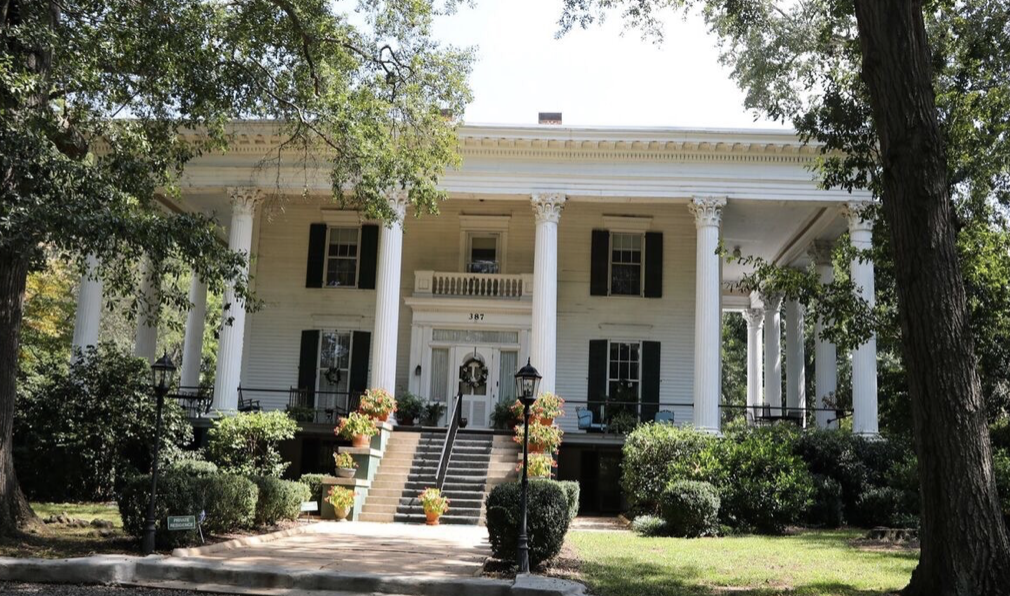
UGA Alpha Phi house. Photo courtesy of the University of Georgia Greek Life Office.
Sorority and fraternity houses are located around UGA’s campus, most on Milledge Avenue and Greek Circle. These houses are close to campus and are on the UGA bus routes, so going to class is an easy walk or ride. The houses are large and beautiful, many with 20-foot columns, and can house around 50 residents each.
Greek houses are typically for second-year members and space is limited per house. Some houses require their executive board to live in the house, but this is a decision made by the chapter. Many members who are heavily involved with their organization choose to live in the house to be close to friends and activities. Each house has their own way of deciding which members are able to live there, but most are heavily based on GPA.
Members living in the house pay for rent, dues, fees, and their meal plans. According to The University of Georgia Panhellenic Council, on average, this comes out to $4,359 per semester for sororities. Keep in mind that this price includes sorority dues for the semester.
Most Greek houses are owned by their organization but choose to follow the same schedule as residence halls. This means that most homes are closed for the holidays and summer. Some houses are owned by the organization and implement their own schedule, which is why you may see fraternities remain open over the summer.
Read Next: Where Do UGA Students Live: Alternatives to Greek Housing
Student Housing Apartments
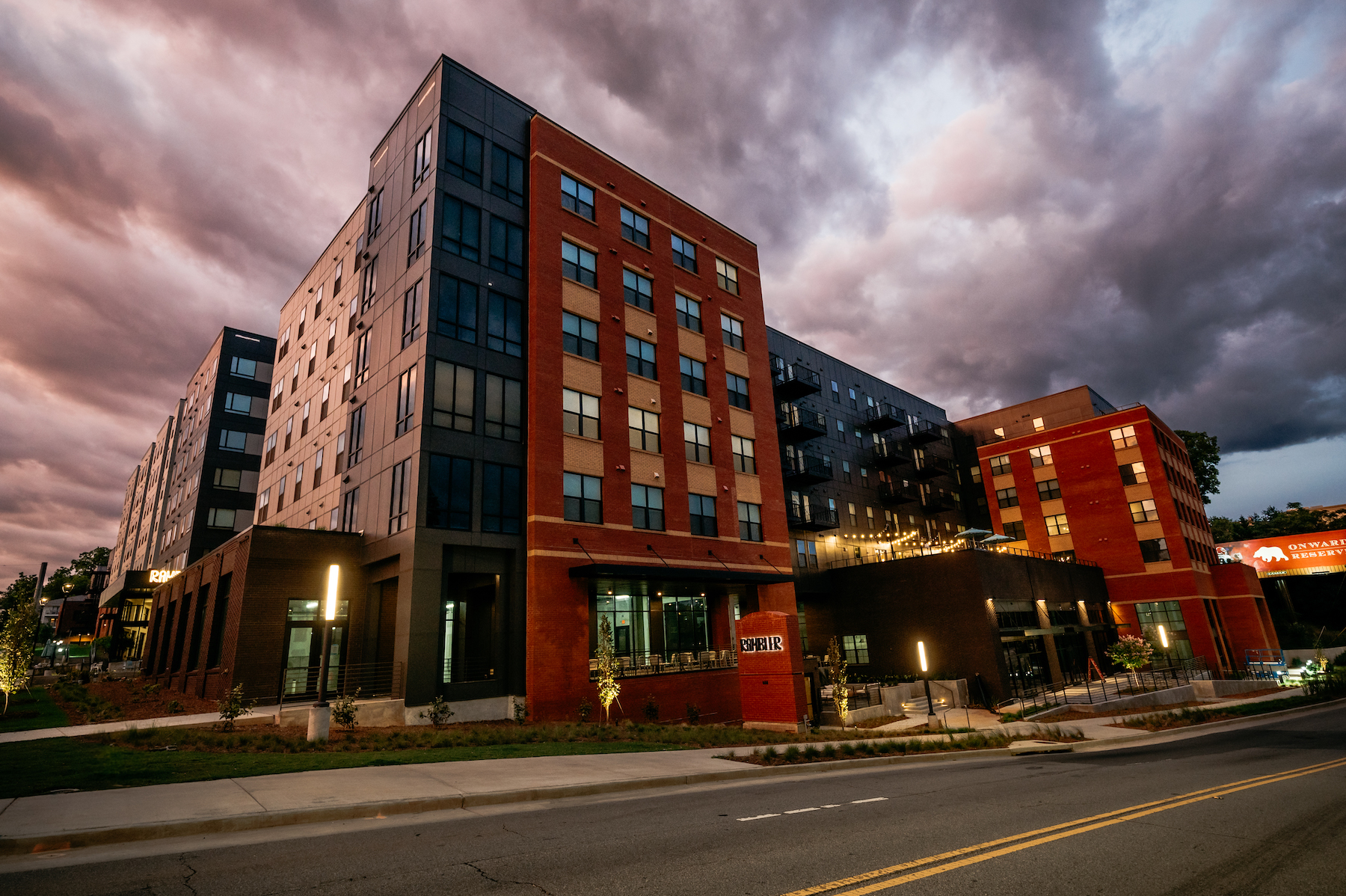
Rambler is conveniently located just blocks from UGA campus.
Student housing apartments are the most popular housing option for UGA students. There are numerous apartments to choose from and each have their own benefits. These apartments are located around campus, often downtown, and most are a short walk to class.
Read Next: What are Purpose Built Student Housing Apartments?
These apartments offer year-long individual leases, meaning you will solely be responsible for your individual rent, room, and common areas of your apartment. Also, these apartments typically offer the option to sublease or relet your room over the summer (or semester) if you will not be in Athens and do not wish to pay for these months.
If you are unsure about who your roommate(s) will be for the following year, many apartment leasing offices offer roommate-matching to ease the stress that comes with this decision. This option is great for transfer students or those who are looking to meet new people.
Student housing apartments are higher-end and tailored to the student lifestyle. These apartments have added amenities such as a gym, golf simulator, pool deck, game room and more.
Off-campus student apartments near UGA range from around $1,000 to $2,000 per person, per month depending on location, size, quality and other factors.
Traditional Apartments
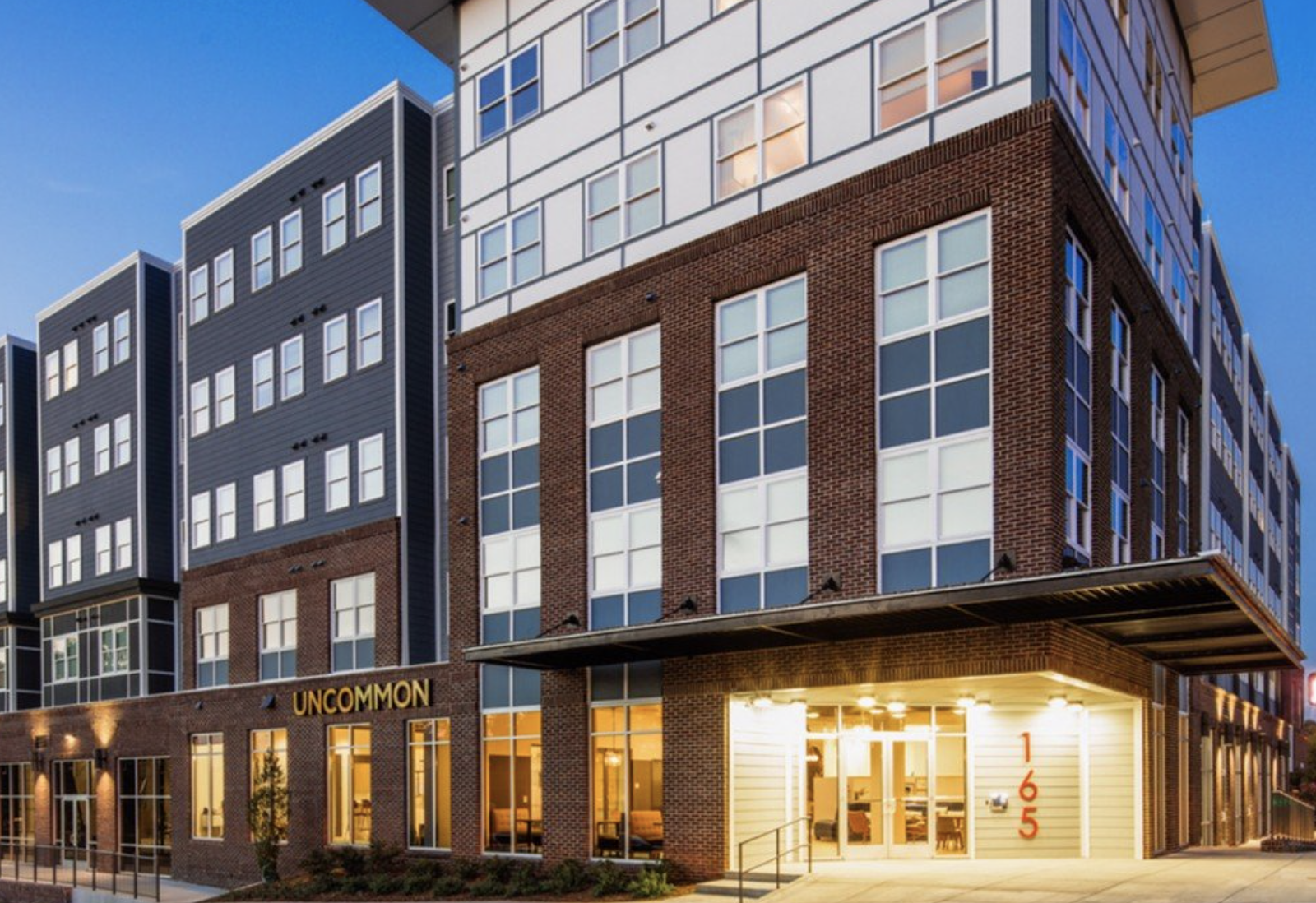
Photo courtesy of Uncommon Athens.
If you want to live in an apartment but don’t value the new amenities and modern design that student apartments have to offer, traditional apartments might be for you. These apartments do not have the same luxury amenities as student housing options, and will usually offer a small amenity package at best.
Traditional apartments are located throughout Athens and their monthly rates range from around $675 to $2,200 per month depending on a number of factors such as amenities, location and floor plan. These apartments typically offer traditional one-year leases for you and your roommates.
Traditional Houses
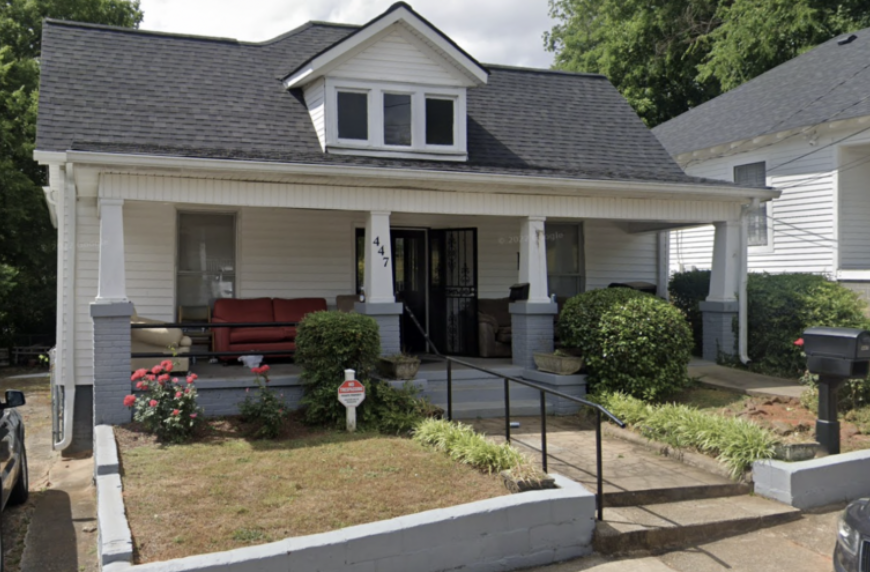
Photo courtesy of CollegeTown Properties
Traditional houses are the fifth and final housing option discussed in this article. Houses are popular for upper-classmen who want to live with their friends in a private space.
These houses are located in the neighborhoods surrounding UGA’s campus and typically offer one- or two-year leases. These houses usually come unfurnished and lack the amenities that many apartments in Athens offer. For this reason, monthly rates typically fall between $650 to $950 per person.
2. Lease Type
In order to understand how rent is calculated, it is important to know the different types of leases available.
For an off-campus residential home, you will sign a single, traditional lease with all of your roommates in which you all will be equally responsible for rent, utilities, damages, etc.
For off-campus student apartments, almost all the options in Athens offer individual leases. An individual lease can offer extra peace of mind, as you are individually responsible for your portion of the rent and damages to your personal room, bathroom and communal spaces.
For on-campus living, UGA’s housing office and individual Greek houses will have a housing agreement, which states that you will sign a set amount per semester and take responsibility for any damages to your space.
Additionally, it’s important to consider where you will be in the summer, as off-campus leases generally last a full 12-month period. If you’d like to sign a lease for less than 12 months, you will typically be charged an additional fee. Many apartment buildings around Athens, namely student housing apartments, offer the ability to sublet or relet your room over the summer, and most landlords of off-campus houses expect that this may occur.
With on-campus living, all housing contracts are for the school year only, totaling nine months. If you are not planning on staying in Athens for the summer and don’t want to have a subleaser, this is a great option.
Greek houses are located both on and off-campus, and most are owned by UGA. Residence halls and most Greek Houses are centered around the UGA academic calendar, so if you are living in one of these, you will have move-in and move-out dates for winter and spring break, and will not be allowed in your room during these times. However, some Greek Houses are owned by their Nationals or alumni and therefore set their own dates apart from UGA.
Read Next: How to Sign a Lease at a Student Housing Apartment near UGA
3. Floorplans
After understanding the different types of housing available and what their leases entail, the next thing to consider is floorplans.
Floorplans that have more bedrooms will usually have a lower price point per person in comparison to a one- or two-bedroom apartment. This is because residents in these apartments all utilize the same common areas. So, you would potentially have four people splitting the cost of one common area as opposed to two.
Additionally, apartments or houses with shared bedrooms and/or bathrooms are typically more affordable, while apartments with individual bedrooms and/or bathrooms will be more expensive.
4. Building Age
The age of the building will be a factor in the overall monthly rental rate, as newer buildings cost more. This is because newly-renovated buildings usually offer nicer, trendier and more appealing features, finishes, and amenities than their older counterparts.
This is reflected in apartment prices mainly, as older apartments typically fall below $1,100 per month, whereas newer models can be upwards of $2,000.
5. Unit/Room Features
Outside of floor plans and amenities, it is important to consider the features of the individual unit you will be leasing. The following are additional factors that may impact your overall cost:
- Is your unit furnished?
- Does the unit have a balcony?
- Do you have your own bathroom?
- Is your bathroom attached to your bedroom?
- Do you have windows in your bedroom?
- Do you have an in-unit washer/dryer?
- What floor are you on? Are you on a quieter floor? One with better views?
If any of the answers to these questions is “yes,” you can expect to see a higher rental rate.
Read Next: 8 Ways to Save Money on Student Housing in Athens, GA
Other Fees to Consider On Top of Monthly Rental Rate
1. Parking/Transportation
Living outside of the city center will without a doubt cost less than living downtown, but you must also consider parking, transportation and overall quality.
On-campus parking at UGA is hard to come by if you are not living in a residence hall. Applications for on-campus student parking permits open in June. They will cost $20 to $40 per month depending on the location of your lot. Parking spaces for students are of high demand, and not everyone is awarded a spot, so make sure to take this into consideration when deciding where to live in Athens.
Additionally, UGA and Athens Transit offer “free” transportation for students. Students pay a transportation fee in their tuition for UGA buses, and the Athens mayor recently made bus transportation free. The UGA buses have many routes, but none further from campus than downtown and Milledge. The Athens buses run throughout the city, but rarely stay on schedule, so if you are running behind this may not be the most reliable option.
Read Next: Ultimate Guide to Parking near The University of Georgia
2. Utilities
For many students, this will be their first time taking on the responsibility of paying rent and utilities. Utilities include electricity, heating, cooling, water, garbage, and some places (like apartment buildings) include a cost for Wi-Fi and/or cable.
Your utility bill will depend on a number of factors including time of year, number of roommates, Wi-Fi routers, how frequently the washing machine and dishwasher are used, and more. Dorms and Greek Houses include utilities in the total amount to be paid per semester.
3. Additional Costs
When budgeting, it’s also important to consider the costs associated with living that are not included in your rent. These additional costs may include:
- Rental Insurance
- Trash
- Moving fees
- Wi-Fi
- Cable TV
- Pet Fees
- Technology Packages
- Security Deposit
Read Next: Base Rental Rate vs. Total Monthly Cost: What’s the Difference?
These costs can make a significant difference in your budget. It’s important to be prepared and understand your personal costs before signing a lease.
We hope that this article has helped you to better understand how much it costs near UGA, and what housing option might be right for you.
If you have any questions or would like to learn more about Rambler, please contact our leasing staff or visit our website. We are more than happy to help in your search for housing!


